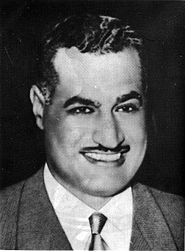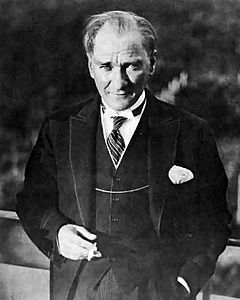The events in Egypt continue to evolve at a breathtaking pace. The most recent news is the dissolution of the puppet parliament and the government’s associated agencies with the role of comptroller in the hand’s of Egypt’ military. The military insists it is positioning itself to moderate a transition to representative government with elections to occur in September. History as always allows for lessons to reflect upon. The Egyptian military overthrew the monarchist government in 1952 with a council of officers led by Gamal Abdel Nasser, in a so called “Association of Free Officers” dedicating themselves to be “guardians of the people’s interests“, named a President, General Muhammed Najuib, with backing from disparate groups such as the Muslim Brotherhood and the Egyptian Communist Party. Sound familiar? In a short time, however, the council reformed itself into the Egyptian Revolutionary Command Council, tensions rose between the civilian government and the Council , and Nasser in January of 1953, declared a one party state, with progressive attainment of the machinery of power until after the Suez conflict in 1956, he assumed direct control. He did not abdicate his power, promoting a belligerent form of pan-Arab nationalism until his death in 1970. His fellow officer and long time confidant, Anwar Sadat, took over, and following Sadat’s assassination in 1981, was succeeded by Hosni Mubarak. Egypt’s current “guardians’, the Egyptian military, own a direct ancestral connection to this history.
Sound familiar? In a short time, however, the council reformed itself into the Egyptian Revolutionary Command Council, tensions rose between the civilian government and the Council , and Nasser in January of 1953, declared a one party state, with progressive attainment of the machinery of power until after the Suez conflict in 1956, he assumed direct control. He did not abdicate his power, promoting a belligerent form of pan-Arab nationalism until his death in 1970. His fellow officer and long time confidant, Anwar Sadat, took over, and following Sadat’s assassination in 1981, was succeeded by Hosni Mubarak. Egypt’s current “guardians’, the Egyptian military, own a direct ancestral connection to this history.
The position of the military as a force of the people in Arab lands are perhaps linked to the only time it seems to have at least attempted to participate in institutionalising an Islamic country’s attempt at democracy. The Turkish hero of World War I, Mustafa Kemal Pasha, who successfully resisted the British at Gallipoli in one of the British Empire’s most painful defeats, additionally resisted the victorious allies’ attempts to subjugate post war Turkey. He refused to accepted a divided stump of a country proposed, declared himself Kemal Ataturk, “father of the Turks”, and successfully fought a small war of independence, resulting in the formation of the modern Turkey we know.  Through his entire reign, he sought to modernize Turkey along secular, democratic lines, assuring the Turkish Republic would not dissolve in fractional tribal chaos that plague so many lands of the former Ottoman Empire. Though he was a strong proponent of western democracy, he always saw the Turkish military as the ultimate protectors of the republic against unstable interests and felt no qualms about occasionally “righting the ship of state” with military oversight and intervention when needed.
Through his entire reign, he sought to modernize Turkey along secular, democratic lines, assuring the Turkish Republic would not dissolve in fractional tribal chaos that plague so many lands of the former Ottoman Empire. Though he was a strong proponent of western democracy, he always saw the Turkish military as the ultimate protectors of the republic against unstable interests and felt no qualms about occasionally “righting the ship of state” with military oversight and intervention when needed.
The past few years in Turkey have seen the creeping expansion of an Islamist government in Turkey led by democratically elected Prime Minister Recep Erdogan, and the military has been slowly but progressively marginalized. Erdogan has worked tirelessly to remove secular generals from the army and replace them with those who have less issue with an islamist shade to Turkish society and law, similar to the progressive role of the Revolutionary Guard in Iran removing the secular voices of the Iranian army in the early 1980’s. Ataturk would have been appalled and would have “cleansed” the government of this tendency toward religious governance, believing it anathema to a modern society.  European governments have been vehement in their warnings to the Turkish military to remove any desire on the military’s part to “control” events, further emboldening Erdogan. Now it appears that the cauldron that has simmering beneath the surface in Turkey, driven by the recent events in Egypt are about to boil over. Erdogan has determined to take the final step in emasculating the military’s independence by essentially accusing them of treason and plottage of an overthrow of Turkey’s government, and seeking the arrest of many officers. This unreported event may prove to be a more dangerous and unstable event than anything happening in Egypt, and bears very close watching. The current American government’s stunning ineptitude regarding Egypt, has absolutely no room for error in Turkey, a NATO ally astride the gates of Europe.
European governments have been vehement in their warnings to the Turkish military to remove any desire on the military’s part to “control” events, further emboldening Erdogan. Now it appears that the cauldron that has simmering beneath the surface in Turkey, driven by the recent events in Egypt are about to boil over. Erdogan has determined to take the final step in emasculating the military’s independence by essentially accusing them of treason and plottage of an overthrow of Turkey’s government, and seeking the arrest of many officers. This unreported event may prove to be a more dangerous and unstable event than anything happening in Egypt, and bears very close watching. The current American government’s stunning ineptitude regarding Egypt, has absolutely no room for error in Turkey, a NATO ally astride the gates of Europe.
Like the mythical box of Pandora, the lid has been removed to a multi-century suppression of Middle Eastern forces that will play out in a way we can only guess. It is hard to know if there is another Mustafa Kemal Ataturk out there. One thing is for sure, The Obama Administration is ill equipped to recognize such a leader, and sadly unwilling to be principled enough to be a steady force for good, in a unstable time crying out for American leadership.
Fasten your seatbelts. Its going to be a very, very bumpy night.
